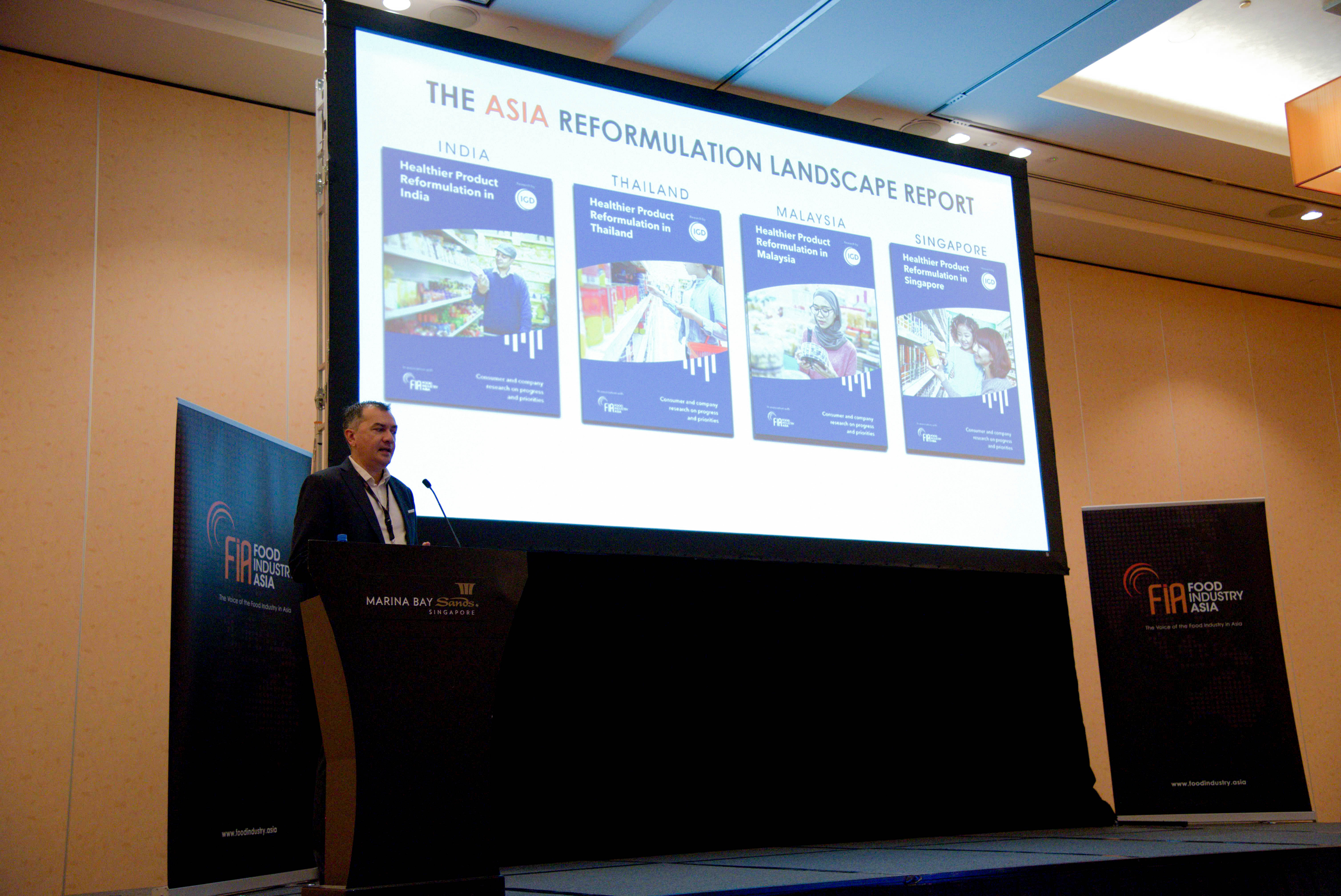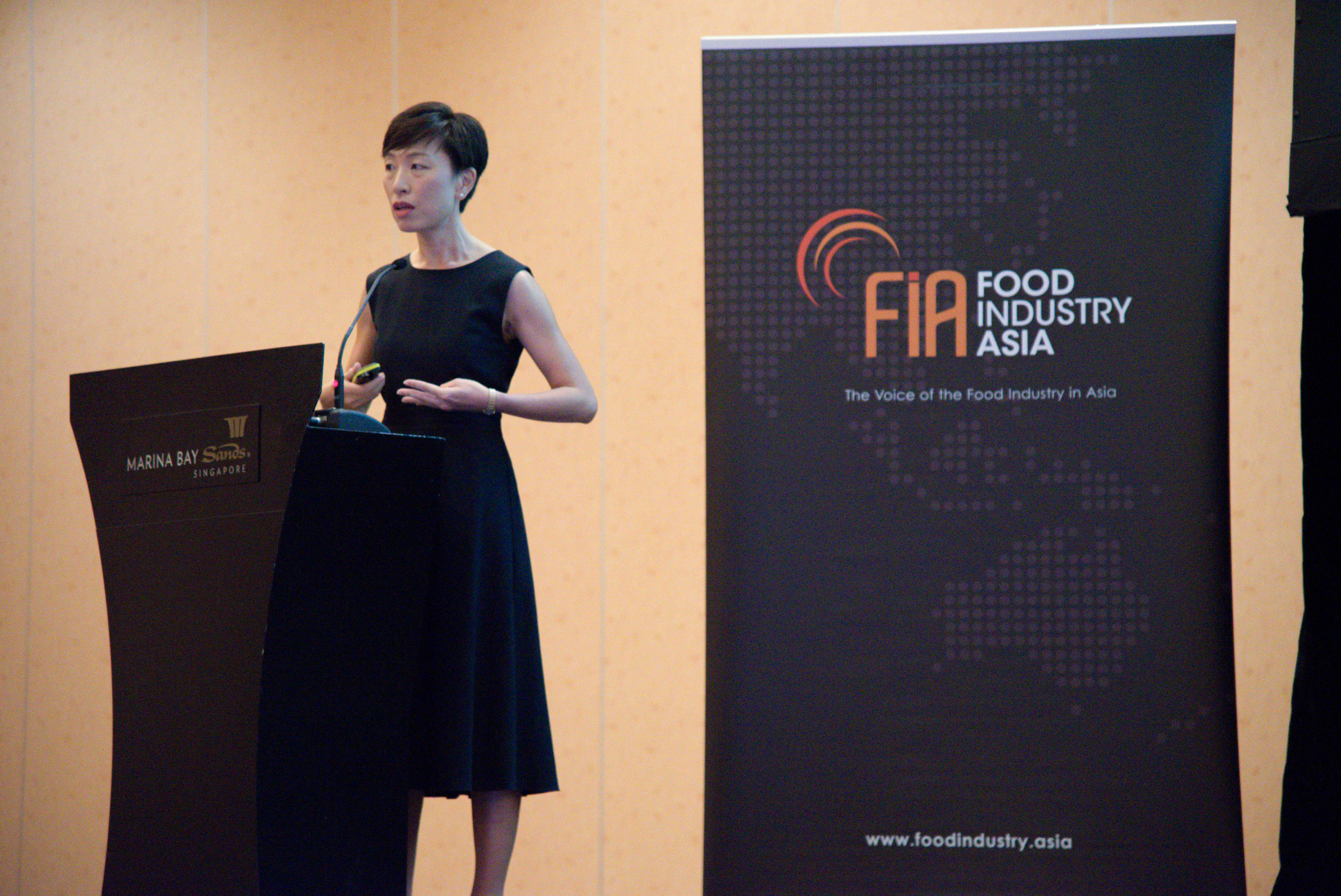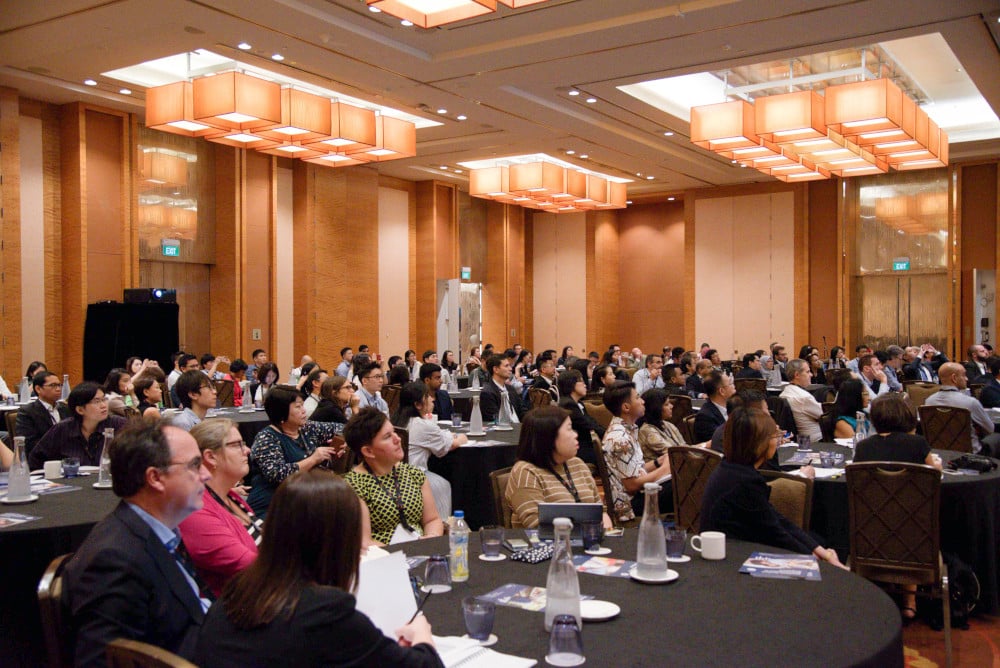Reformulation is increasingly becoming a main focus area for the food and beverage industry in Asia, with manufacturers revamping products to provide healthier alternatives in line with meeting consumer demand. While reformulation was once embraced by just a handful of brands, the current trend of reducing sugar, fat and salt, fortification and adding in functional ingredients is now increasingly prevalent across a variety of food and drink products.
FIA recently held the inaugural Asia Reformulation Conference, bringing together over 150 delegates from ingredient and food manufacturing companies to discuss the state of play on reformulation in the region, and the importance of collaboration to spur efforts geared towards delivering improved nutrition.

Steven Bartholomeusz, Policy Director at FIA, launching the Asia Reformulation Landscape Report
The Asia Reformulation Landscape Report, jointly carried out by FIA and IGD, was launched at the conference. The report compared the reformulation landscapes across four Asian markets – India, Thailand, Malaysia and Singapore – and provided insights on the similarities and differences in consumer perception and industry efforts on reformulation. This study, which is the first of its kind in these markets, shows a promising roadmap of industry efforts and priorities to deliver healthier product offerings to its increasingly health conscious consumers.
According to the report, 90% of consumers in Asia are trying to be healthier, a number that is higher than their UK counterparts (80%). “There is wide consumer acceptance towards reformulation, and they [consumers] are in agreement that food companies should tweak their formulations to make products healthier. The good news is that most companies have embarked on their reformulation journey,” said Steven Bartholomeusz, Policy Director at FIA.
81% of the companies surveyed across all four markets have either started or finished their reformulation work, and 13% of companies have plans to get started, illustrating that they are keen to provide healthier products to consumers.
 Ann Low, Senior Deputy Director of the Healthy Food and Dining Division at Health Promotion Board
Ann Low, Senior Deputy Director of the Healthy Food and Dining Division at Health Promotion Board
While the food industry has been working on various solutions to deliver better nutrition, tackling the dual burden of obesity and undernutrition has also taken the utmost priority for many governments in Asia, including Singapore. In 2017, Health Promotion Board (HPB) introduced the Healthier Ingredient Development Scheme (HIDS), which encourages food manufacturers to innovate and develop a wider variety of healthier ingredients and products suited to local tastes, as well as supports the industry in promoting the uptake of healthier ingredients in Singapore’s food service.
“It’s not just about food reformulation – we are looking at the whole cycle from regulations to go-to market support to build a healthy food ecosystem. 42 food manufacturers are currently on board and more than 150 products have been launched through this scheme,” said Ann Low, Senior Deputy Director of the Healthy Food and Dining Division at HPB, and keynote speaker at the conference. “HPB is working to debunk the myths around healthy foods – that they are expensive and not tasty – to ensure that healthy, reformulated products are sustainable in the market.”
The taste of success
Changing the composition of food is by no means an easy task. Even a small change to a product can drastically impact the taste, texture, aroma or appearance of a product. “We have to strive to find the balance in reducing nutrients of concern, removing artificial ingredients, and increasing ‘good’ nutrients while not compromising the taste, cost and convenience,” said Thomas Hayes, Global Food Technology and Innovation Analyst at Lux Research.
This is where technical expertise and consumer testing comes into play. Understanding the science of ingredients and processing methods, as well as what the consumers want, requires ingredient suppliers, technology providers and other experts to work together. “There is a need for collaboration – it is a critical part of achieving success and driving change,” said Jonathan Middis, Chief Technical Officer at Tamu Group.
Seeing the world as consumers do
More needs to be done to be able to educate the public on the benefits of reformulated products – “Smart communication is key,” said Olivier Roger, Carbohydrate Expert and Strategic Network Leader of Nestlé R&D, “Even if a product is nutritious, consumers may not accept it if they perceive the products to be too different or that they contain strange ingredients.”
“Many F&B companies are keeping up the reformulation trends but are all of these targeted at the right consumers?” questioned Aoife Murphy, Nutrition Scientist at Kerry, stating that more efforts should be focused on looking at products through the consumer lens in order to figure out their needs and help them familiarise to the concept of reformulation.
Moving forward

FIA intends to extend the reformulation study to cover other Asian markets, and already commenced a study in partnership with IGD in Indonesia. With obesity and undernutrition co-existing in numerous countries in the region, many companies are taking steps to reformulate and improve their products to meet consumers’ demands for healthier food choices. Studies like these are valuable for both the industry and government bodies to assess progress and recognise the areas of support businesses are seeking to further their reformulation efforts to advance the public health agenda.
While the F&B industry must pave the way in developing healthier reformulated products, collaborations with government, other industry bodies, non-governmental organisations and communities, are required to fundamentally move the dial. Academic and research institutions can also play an important role by collaborating with corporates to advance scientific research that can help inform product reformulation. With the stage being set for all stakeholders to collaborate and accelerate reformulation efforts, it is vital for us to get into gear and move towards improving health and nutrition in Asia.
FIA issues regular e-bulletins with analysis on relevant food and beverage industry issues across the region. To subscribe to this service, please sign up for our email list at the footer.
